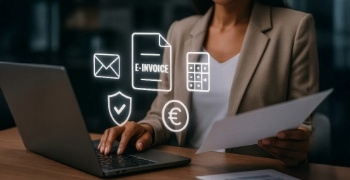
South Africa e-invoicing and VAT update: VAT hike cancelled, e-invoicing planned for 2028
Updated – April 2025
South Africa’s National Treasury has withdrawn its proposed value added tax (VAT) rate increase. The rate was due to rise on June 1, 2025, from 15% to 16%. However, this was cancelled on April 24, 2025, following strong public feedback, economic concerns, and rising cost-of-living pressures.
The withdrawal of the VAT hike offers temporary financial relief to households and small businesses. However, companies that had updated billing systems, VAT documentation, or pricing models in preparation for the increase must now review and revert any changes.
This development highlights the importance of agility in VAT compliance — especially as South Africa moves ahead with plans for mandatory e-invoicing and broader digital tax transformation. The South African Revenue Service (SARS) is preparing to introduce mandatory e-invoicing by 2028, and a public consultation on technical and legal requirements is expected to take place in late 2025.
The move towards mandatory e-invoicing aligns with South Africa’s push towards digitised, real-time tax reporting. An additional goal is to reduce tax fraud and invoice manipulation in South Africa, which, according to current estimates, costs the nation between ZAR 22 billion and ZAR 50 billion per year. SARS is reportedly considering a Peppol-based 5-corner model for e-invoicing and aims to offer pre-filled VAT returns based on e-reporting data.
By looking at the most common outcomes from other public e-invoicing consultations in Europe, India, and Australia, we can gain insight into possible e-invoicing plans for South Africa: broad consensus in favour of mandatory, standardised e-invoicing systems (particularly those involving real-time reporting), and most consultations conclude that voluntary systems are insufficient to ensure widespread adoption or reduce VAT fraud.
How businesses can prepare for e-invoicing
In addition to reverting any updates made in anticipation of the VAT increase, businesses should begin transitioning to e-invoicing-compliant software by auditing their current systems and training teams on evolving processes. Adopting a scalable e-invoicing solution can help businesses in a number of ways:
- Faster invoice reconciliation
- Reduced errors related to manual entry and processing
- Ability to comply with live-reporting rules
- Continued compliance and minimised disruptions to operations
Ready for e-invoicing? Avalara E-Invoicing and Live Reporting can help you comply with global mandates and reporting requirements as they evolve.

Avalara Tax Changes 2026 is here
The 10th edition of our annual report engagingly breaks down key policies related to sales tax, tariffs, and VAT.
Stay up to date
Sign up for our free newsletter and stay up to date with the latest tax news.



